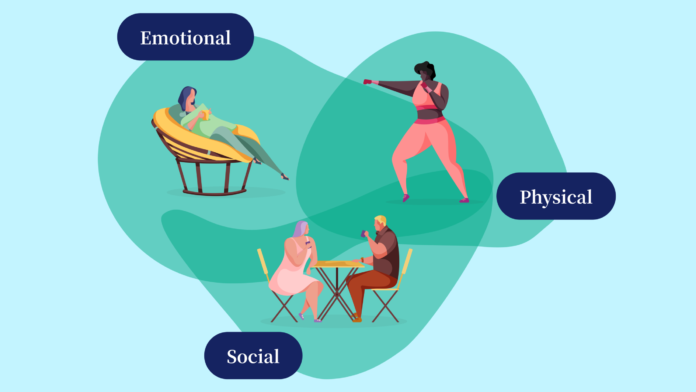Prostate cancer is a diagnosis that can be life-altering, but advancements in treatment and a deeper understanding of lifestyle factors have given patients more tools to manage the disease.
While medical treatments such as surgery, radiation, and hormone therapy are essential, research increasingly shows that diet, exercise, and mindset can significantly impact both treatment outcomes and quality of life. By making intentional lifestyle changes, patients can support their health and well-being, improving their ability to manage prostate cancer effectively.
Diet: Fueling the Body for Better Health

What you eat plays a crucial role in supporting your body during and after prostate cancer treatment. A balanced, nutrient-rich diet can help manage side effects, boost the immune system, and potentially slow cancer progression. Here are key dietary strategies to consider:
1. Focus on Plant-Based Foods
A diet rich in fruits, vegetables, whole grains, and legumes provides essential vitamins, minerals, and antioxidants that support overall health. Cruciferous vegetables like broccoli, cauliflower, and Brussels sprouts contain compounds that may help slow cancer growth, while tomatoes are rich in lycopene, an antioxidant linked to prostate health.
2. Limit Red and Processed Meats
Studies suggest that diets high in red and processed meats may increase the risk of prostate cancer progression. Instead, opt for lean protein sources like poultry, fish, and plant-based proteins such as beans, tofu, and lentils.
3. Choose Healthy Fats
Replace saturated and trans fats with healthy fats found in nuts, seeds, avocados, and olive oil. Omega-3 fatty acids, found in fatty fish like salmon and mackerel, have anti-inflammatory properties that may benefit prostate health.
4. Reduce Sugar and Processed Foods
Excess sugar and highly processed foods can lead to weight gain and inflammation, which may worsen cancer outcomes. Focus on whole, unprocessed foods to maintain a healthy weight and support overall well-being.
5. Stay Hydrated
Drinking plenty of water is essential for overall health and can help manage side effects like fatigue and constipation that may arise during treatment.
Exercise: Strengthening the Body and Mind
Regular physical activity offers numerous benefits for men with prostate cancer, including improved physical function, reduced fatigue, and enhanced mental well-being. Exercise can also help manage the side effects of treatment, such as weight gain, muscle loss, and decreased bone density.
1. Cardiovascular Exercise

Aerobic exercises like walking, jogging, cycling, and swimming improve heart health, boost energy levels, and reduce fatigue. Aim for at least 150 minutes of moderate-intensity aerobic activity or 75 minutes of vigorous-intensity activity each week.
2. Strength Training
Resistance exercises such as weightlifting, bodyweight exercises, and resistance band workouts help maintain muscle mass, improve bone density, and support overall strength. Strength training is especially important for men undergoing hormone therapy, which can lead to muscle loss and bone thinning.
3. Flexibility and Balance
Stretching and balance exercises, such as yoga and tai chi, enhance flexibility, reduce stiffness, and promote relaxation. These activities can also help manage stress and improve overall well-being.
4. Staying Active Throughout the Day
In addition to structured exercise, aim to stay active throughout the day by walking, taking the stairs, and reducing sedentary time. Even small amounts of movement can add up and contribute to better health.
Mindset: The Power of Mental and Emotional Well-Being

A positive mindset and emotional well-being are vital components of managing prostate cancer. Coping with a cancer diagnosis can be challenging, but cultivating resilience and maintaining a sense of control can improve both mental health and treatment outcomes.
1. Managing Stress
Chronic stress can negatively impact the immune system and overall health. Practice stress-reducing techniques such as deep breathing, meditation, and progressive muscle relaxation to promote a sense of calm and reduce anxiety.
2. Staying Connected
Maintaining strong social connections provides emotional support and reduces feelings of isolation. Share your experiences with family and friends, and consider joining a prostate cancer support group to connect with others who understand what you’re going through.
3. Maintaining a Positive Outlook
While it’s natural to experience a range of emotions after a cancer diagnosis, maintaining a hopeful and optimistic outlook can improve quality of life. Focus on the aspects of your life that bring you joy and fulfillment, and set realistic goals to maintain a sense of purpose.
4. Seeking Professional Support
If you’re struggling with anxiety, depression, or other emotional challenges, don’t hesitate to seek help from a mental health professional. Counseling and therapy can provide valuable tools for coping with the emotional impact of cancer.
Combining Lifestyle Changes for Maximum Impact
The most effective approach to managing prostate cancer involves combining dietary improvements, regular exercise, and a positive mindset. These lifestyle changes work synergistically to support your overall health and well-being. For example, exercise can reduce stress and improve mood, while a healthy diet provides the energy and nutrients needed to stay active. Maintaining a positive outlook can enhance motivation and help you stick with healthy habits.
Research shows that men who adopt a healthy lifestyle after a prostate cancer diagnosis often experience better outcomes, including slower disease progression, improved physical function, and a higher quality of life. By taking an active role in your health, you can empower yourself to live well with prostate cancer.
Conclusion
Managing prostate cancer is about more than just medical treatments—it’s about supporting your body and mind through healthy lifestyle choices. A balanced diet, regular exercise, and a positive mindset can improve your overall well-being, reduce side effects, and help you maintain a high quality of life. While these changes may not replace traditional treatments, they play a crucial role in supporting your health and resilience throughout your cancer journey. By taking control of your lifestyle, you can face prostate cancer with strength, confidence, and hope.







